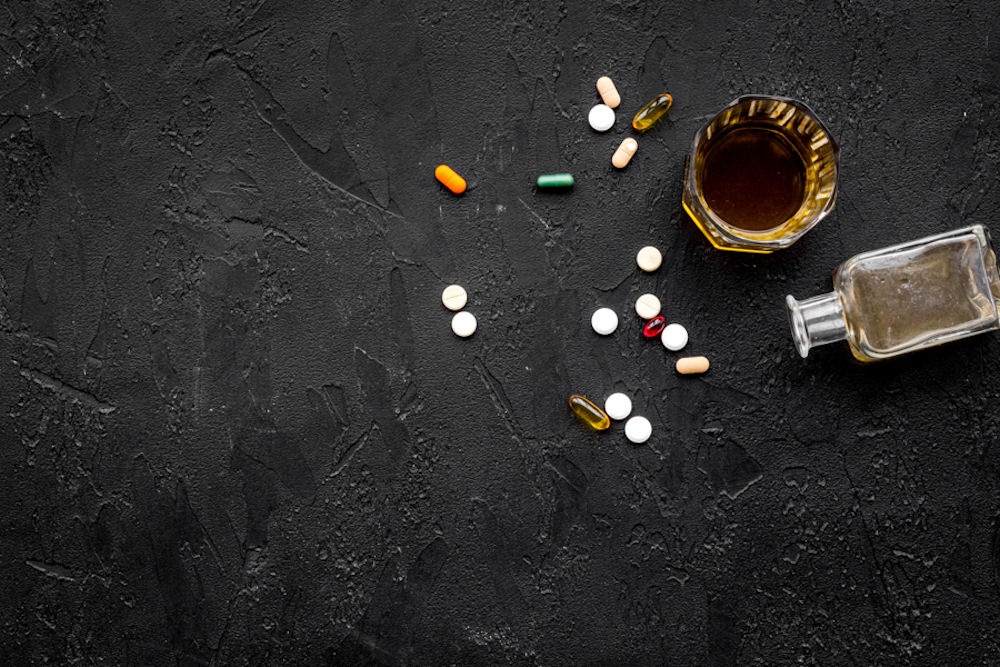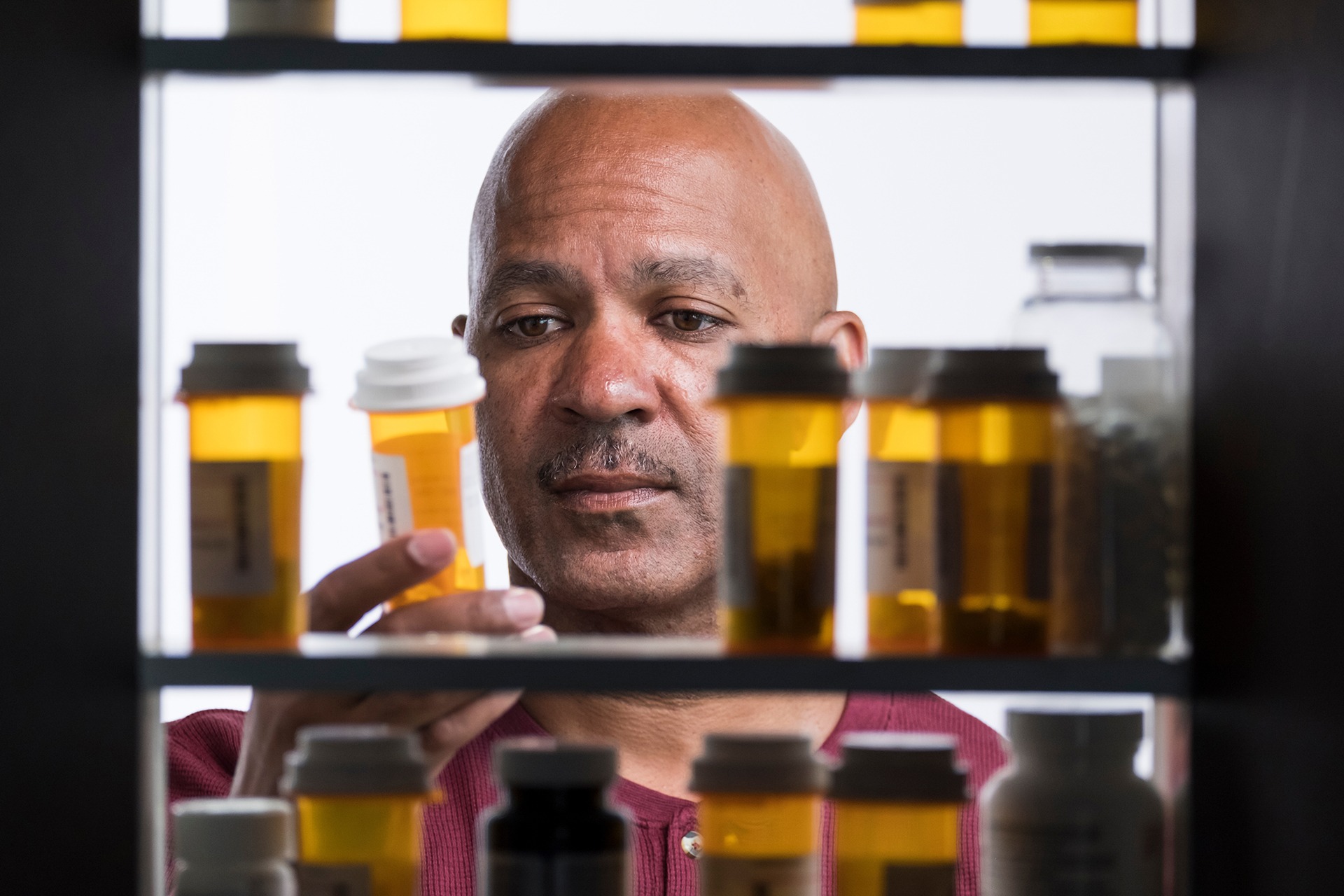Polysubstance use happens when a person takes two or more drugs at the same time or within a short period. This can include alcohol, prescription medications, or illegal substances. People may use multiple substances to increase the effects, manage withdrawal, or cope with stress.
Polysubstance use is common in social settings, where people mix drugs without knowing the risks. It also happens with long-term substance use, as tolerance builds and stronger effects are needed. Those with mental health conditions, chronic pain, or past trauma are more likely to engage in polysubstance use.
Mixing substances can cause dangerous side effects, including overdose, organ damage, and mental health struggles. Free by the Sea provides personalized treatment plans to help people safely recover. With medical support and therapy, individuals can regain control and build a healthier future.
Dangers Associated with Polysubstance Misuse
Jump to Section
Mixing multiple substances can have dangerous and unpredictable effects on the body and mind. Each drug interacts differently, increasing the risk of harmful reactions. Polysubstance misuse can lead to serious health complications, addiction, and even death.
- Increased Overdose Risk: Mixing drugs can overload the body, making overdose more likely and harder to treat.
- Stronger Side Effects: Combining substances can intensify dizziness, confusion, nausea, and impaired judgment.
- Heart and Breathing Problems: Some drug combinations slow breathing and heart rate, leading to coma or death.
- Mental Health Struggles: Polysubstance abuse can worsen anxiety, depression, and paranoia.
- Liver and Kidney Damage: Filtering multiple substances strains organs, increasing the risk of failure.
- Higher Addiction Risk: Using multiple substances can make quitting harder, leading to stronger dependence.
- Unpredictable Reactions: Some combinations cause severe reactions, even if taken in small amounts.
What Are the Short-Term Effects of Polysubstance Use?
The short-term effects depend on the substances used, dosage, and personal health. Some effects may be mild, while others can be life-threatening.
- Drowsiness and Dizziness: Combining depressants, like alcohol and opioids, can cause extreme drowsiness and slow reaction times.
- Confusion and Memory Loss: Some drug mixtures affect brain function, leading to poor decision-making and memory problems.
- Nausea and Vomiting: Many drug combinations upset the stomach, causing discomfort and dehydration.
- Breathing Problems: Some drugs slow breathing, which can lead to oxygen loss and unconsciousness.
- Loss of Coordination: Mixing substances can impair movement, increasing the risk of falls or accidents.
- Mood Swings: Rapid emotional changes, from extreme happiness to deep sadness, can occur.
What Is the Long-Term Impact of Polysubstance Use?
Repeated use of multiple substances can cause lasting physical and mental damage. The longer someone misuses substances, the harder it becomes to stop.
- Chronic Health Issues: Long-term use can lead to liver disease, heart problems, and weakened immune function.
- Mental Health Disorders: Anxiety, depression, and psychosis can develop or worsen with continued substance use.
- Brain Damage: Some drugs permanently affect memory, concentration, and decision-making.
- Addiction and Dependence: Over time, the body and mind become reliant on substances, making recovery difficult.
- Financial and Legal Problems: Sustained substance misuse can lead to job loss, debt, and legal trouble.
- Relationship Struggles: Addiction can damage trust and cause conflicts with family and friends.
Polysubstance abuse is dangerous, but recovery is possible with the right support. Seeking help can prevent long-term harm and restore health.
What Is Polysubstance Overdose?
A polysubstance overdose happens when a person takes multiple drugs, overwhelming the body and causing life-threatening effects. Each substance interacts differently, making overdose unpredictable and harder to treat. Mixing drugs increases the risk of breathing problems, organ failure, and unconsciousness.
Some overdoses happen accidentally when people mix substances without knowing the dangers. Others occur when someone takes more to feel stronger effects. Signs of overdose include slowed breathing, extreme drowsiness, confusion, and unresponsiveness. Call emergency services right away if you think someone is overdosing. Quick medical help can save a life. Individuals struggling with substance use may also benefit from professional depressants addiction treatment washington to prevent future risks and support long-term recovery.
What Are Specific Substance Combinations?

Some drugs are especially dangerous when mixed, increasing health risks and making their effects harder to control. People may combine substances to enhance a high or reduce withdrawal symptoms. However, these mixtures can cause serious harm, even in small amounts.
- Alcohol and Marijuana: This mix increases dizziness, nausea, and impaired judgment, making accidents and risky behavior more likely.
- Alcohol and Ecstasy (MDMA): Alcohol reduces ecstasy’s effects, leading people to take more, which increases the risk of dehydration and overdose.
- Alcohol and Antidepressants: This combination can cause extreme drowsiness, dizziness, and worsened depression or suicidal thoughts.
- Opioids and Cocaine: This mix can put extreme strain on the heart, increasing the risk of heart attack or stroke.
- Opioids and Gabapentin: Taking these together can severely slow breathing and increase the risk of overdose.
- Benzodiazepines and Antidepressants: Both affect brain chemistry, leading to drowsiness, confusion, and increased risk of overdose.
- Benzodiazepines and Muscle Relaxers: This combination can dangerously slow breathing and increase sedation, leading to coma.
- Stimulants and MDMA (Ecstasy/Molly): Mixing these drugs increases body temperature, heart rate, and the risk of dehydration or organ failure.
- Meth and Opioids: The opposing effects can mask overdose symptoms, increasing the likelihood of taking too much.
- Ketamine and Alcohol: Both depress the nervous system, causing memory loss, dangerously slow breathing, and potential unconsciousness.
Mixing substances is always risky, even if someone has done it before. The effects can vary each time, and one mistake can be deadly. If you or someone you love is struggling with polysubstance abuse, support and treatment are available.
How Detox Works in Cases of Polysubstance Misuse?
Detox is the first step in recovery, allowing the body to clear harmful substances in a safe, controlled way. When someone misuses multiple substances, withdrawal can be unpredictable and physically demanding. The effects depend on the substances used, making medical supervision essential. A professional detox ensures safety, reduces discomfort, and lowers the risk of complications. Without proper care, withdrawal symptoms can be severe, leading to dehydration, heart problems, or mental distress. A structured detox process helps individuals manage cravings and prepare for ongoing treatment.
Medical Assessment
Doctors evaluate substance use history, physical health, and mental well-being to create a personalized detox plan.
Stabilization
Medications and therapies help ease withdrawal symptoms, preventing severe reactions like seizures, dehydration, or extreme anxiety.
Monitoring and Support
Medical staff check vital signs, offer emotional reassurance, and address any complications that arise.
Hydration and Nutrition
A balanced diet and fluids help the body heal and restore lost nutrients.
Emotional Support
Therapists and counselors provide guidance to help individuals manage stress and anxiety during withdrawal.
Transition to Treatment
Detox is only the first step; continued therapy is essential for long-term recovery and relapse prevention.
Comprehensive Treatment Options for Polysubstance Misuse
Detox alone does not treat addiction—it only removes substances from the body. Lasting recovery requires therapy, support, and lifestyle changes. A well-rounded treatment plan helps individuals rebuild their lives and develop healthier coping skills. Addressing the root causes of addiction is essential for preventing relapse. Healing is a process that needs patience, dedication, and the right support network.
- Medical Supervision: Continuous care ensures a safe recovery and manages post-detox withdrawal symptoms. Medical staff monitor health and adjust treatment as needed.
- Behavioral Therapy: Cognitive-behavioral therapy (CBT) and other approaches help individuals recognize triggers and change harmful behaviors. Therapy teaches healthier ways to cope with stress.
- Medication-Assisted Treatment (MAT): FDA-approved medications can reduce cravings, making long-term sobriety more achievable. This approach is especially helpful for opioid and alcohol dependence.
- Group Therapy: Support from peers in recovery fosters accountability, encouragement, and connection. Sharing experiences reduces feelings of isolation.
- Individual Counseling: One-on-one sessions address personal struggles, trauma, and emotional challenges linked to substance use. Therapy helps individuals set and achieve recovery goals.
- Holistic Therapies: Activities like yoga, meditation, and exercise promote mental and physical well-being. These therapies reduce stress and improve emotional balance.
- Family Therapy: Addiction affects loved ones, and family therapy helps rebuild trust, improve communication, and strengthen relationships.
- Aftercare Planning: Ongoing support, such as outpatient programs or sober living homes, helps individuals maintain sobriety and prevent relapse. Building a strong support system is key.
Free by the Sea provides dual diagnosis treatment, addressing both substance use and mental health conditions for a lasting, healthier recovery. With the right treatment and ongoing support, long-term recovery is possible. Everyone deserves a chance to live a healthier, addiction-free life.
Free by the Sea Can Help Overcome Addiction in Washington

Overcoming polysubstance abuse is challenging, but you don’t have to do it alone. Free by the Sea offers a safe, structured environment where healing begins. Our compassionate team provides individualized treatment plans to address the physical, emotional, and psychological aspects of addiction. We understand that every person’s journey is different, so we tailor our approach to meet your unique needs.
We combine medical care, therapy, and long-term support to give you the best chance at recovery. Our programs include detox, inpatient treatment, outpatient services, and aftercare planning. We also offer group therapy and holistic treatments to support overall well-being. Whether you need intensive care or ongoing support, we are here to help.
If you or a loved one is struggling with substance misuse, don’t wait to seek help. Addiction can take a toll on your health, relationships, and future, but recovery is possible. Contact us today to start your journey toward a healthier, addiction-free life. We’ll be here to guide and support you through every stage.

Dr. Richard Crabbe joined our team in 2019 as our psychiatrist and medical director. He attended the University of Ghana Medical School where he became a Medical Doctor in 1977. From 1978 through 1984, he was a medical officer in the Ghana Navy and provided a variety of services from general medicine to surgeries. He received his Certificate in General Psychology from the American Board of Psychology and Neurology in 2002.

 March 5th, 2025
March 5th, 2025










